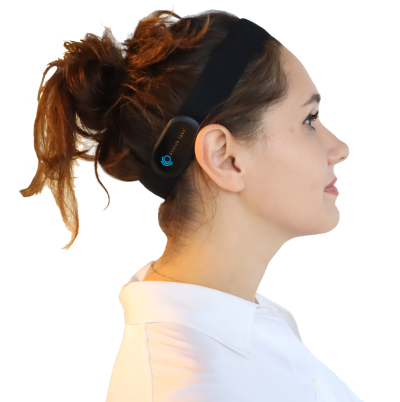Medical device startups are tasked with quite the balancing act: They’re developing new products while simultaneously fundraising to support that development and working with regulatory agencies to bring the products to market.
So far, Otolith Labs is staying steady. The Washington, D.C.-based startup—named for the organs of the inner ear—has built a nerve-stimulating wearable device that aims to relieve the symptoms of chronic vertigo. It already has the FDA’s ear since earning the agency’s breakthrough designation last year.
Next up, Otolith will launch a pivotal trial of the noninvasive Vestibular System Masking (nVSM) technology. If successful, the results will be submitted to the FDA for full clearance for the device to make its U.S. commercial debut. All of those efforts will be supported by series A funding announced Wednesday, which brought in $20 million for the company.
The entire round came courtesy of Morningside Ventures. It’s more than six times bigger than Otolith’s previous financing, which brought in $3.3 million in seed funding last year from a cadre of investors that included serial entrepreneur Mark Cuban, himself a subject of inner ear issues.
Otolith’s nVSM technology sends mechanical stimulation to the body’s vestibular system, the sensory system responsible for regulating motor functions like maintaining balance, posture and stability. The calibrated vibrations are meant to reach the inner ear’s acceleration sensors, where they can suppress the vertigo-related signals sent by the vestibular system to the brain, providing immediate relief from the condition.

The technology is embedded into a headset that’s centered behind the ear, where it can tap into the vestibular system without requiring an implant or any other invasive approach.
Once the device has been validated in clinical studies and authorized by the FDA, it’ll be marketed as a prescription-only device to relieve chronic vertigo and other vestibular disorders—the first of its kind, according to Otolith.
Chronic vertigo is typically caused by an issue with the inner ear’s ability to maintain balance, leading to a feeling that the world is spinning and associated symptoms like dizziness, nausea, headache and hearing loss. The condition affects more than 4 million Americans, per Otolith.
Backed by the fresh financing, first up on the to-do list for Otolith is to begin enrolling participants in its clinical trial of the nVSM headset.
Previous pilot studies of the technology that comprised a total of about 100 subjects found that it was indeed able to provide nearly instantaneous relief from vertigo. According to Otolith, participants in the experimental group were three times more likely than those who received a placebo treatment to report a reduction in their symptoms.